If you don’t have the proper equipment or software, converting DSD (Direct Stream Digital) audio files to PCM (Pulse Code Modulation) audio files might be difficult. Fortunately, you can quickly and easily convert DSD to PCM using our free web converting software.
You don’t need to download or install any apps in order to use our app. Drag and drop your DSD file into the appropriate location, then click “convert” after clicking “Start.” You’ll have a high-quality PCM version of your audio file in a matter of seconds.

Information about the PCM File Format
Pulse code modulation, or PCM, is a technique for expressing analog audio signals digitally. It functions by periodically sampling an analog audio waveform and encoding those samples as binary values. The final digital data can either be saved in a PCM file or sent across a digital communication channel.
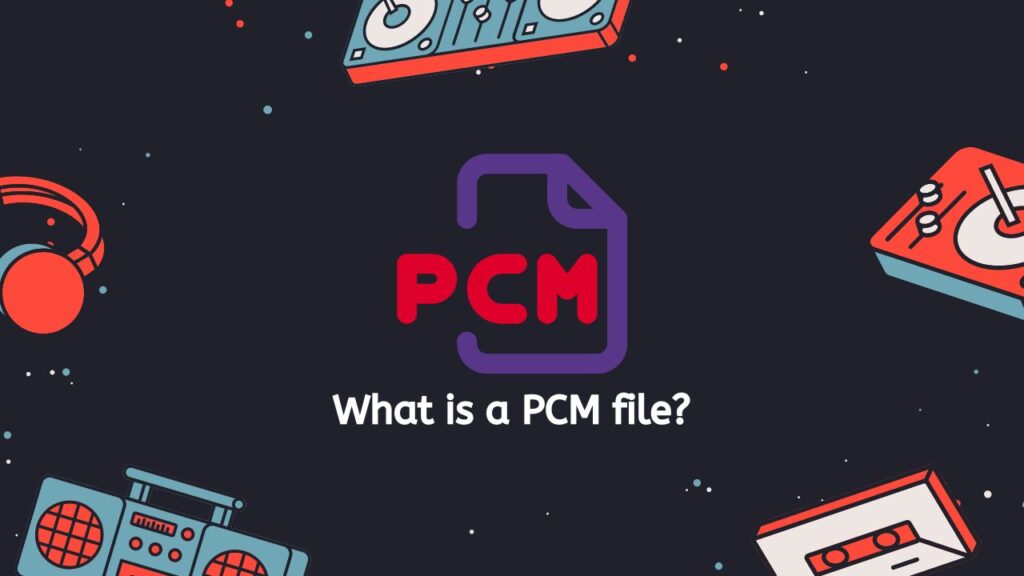
CD and DVD
PCM files are frequently used for internet audio transmission as well as audio storage on PCs and other digital devices. They are frequently utilized for professional audio recording and editing applications, as well as the standard audio format for CDs, DVDs, and other types of digital media.
Lossless Format
The fact that PCM is a lossless format, which faithfully reproduces the original analog audio signal without sacrificing quality, is one of its key advantages. This makes it suitable for uses where audio quality is of utmost importance, such as in audio engineering or music creation.
PCM Variations
PCM comes in a variety of forms, including the most popular one, Linear PCM, as well as Differential PCM, Adaptive PCM, and Companded PCM. Although each of these types uses pulse code modulation to transform analog audio signals into digital ones, each has its own unique features and applications.
Analog Signals
PCM is utilized in audio as well as other situations where digitizing analog signals is required, including telecommunications systems and medical equipment.
An analog audio signal is encoded in a lossless fashion using pulse code modulation to create a PCM file, which is a digital audio file. On computers and other digital devices, it is frequently utilized for the storage and transmission of high-quality audio.
How to Convert from DSD Format to PCM
The following is a thorough guide on how to use AnyConverted to convert DSD files to PCM or to another audio format, like FLAC files to WAV:
To start the conversion process, click “Start.” Your DSD file can be dropped into the online converter. To choose the file from your computer that you wish to convert, you may alternatively click the “Browse File” button.
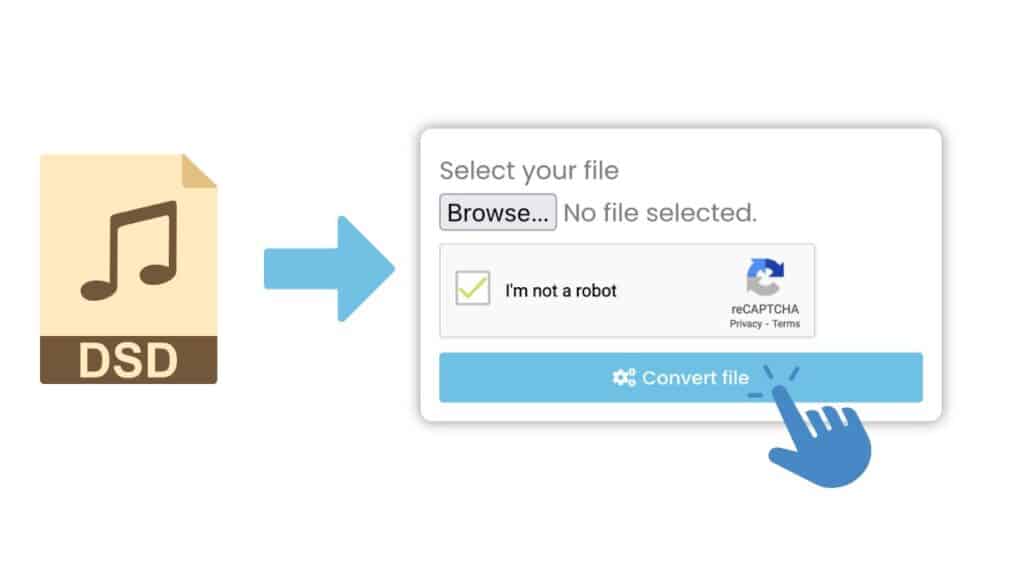
When ready, select “Convert” from the menu. The DSD files will be converted to PCM in the chosen output format by AnyConverted. It will only take a few seconds to complete this process.
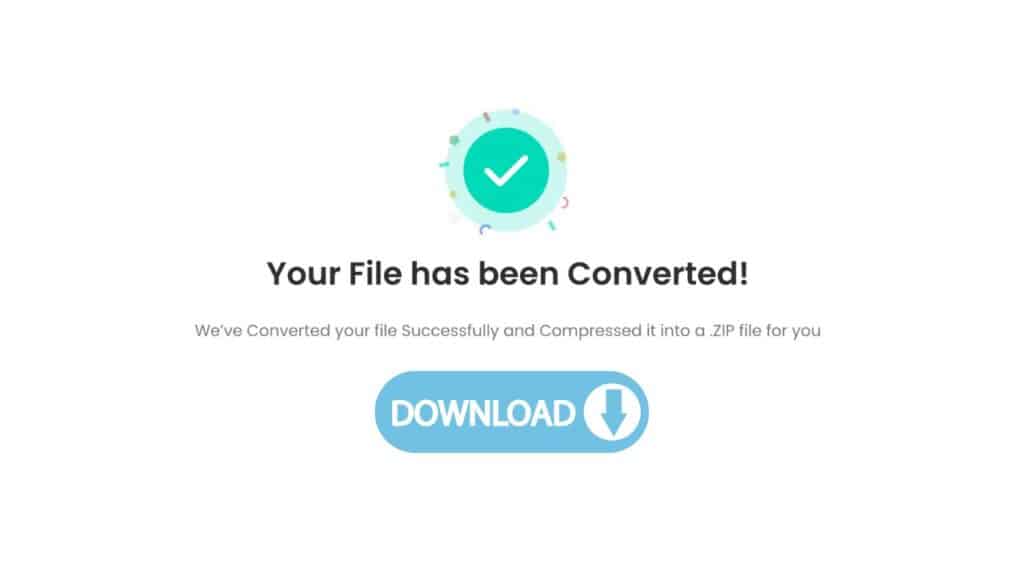
You can download the high-quality PCM file to your computer after the conversion is complete.
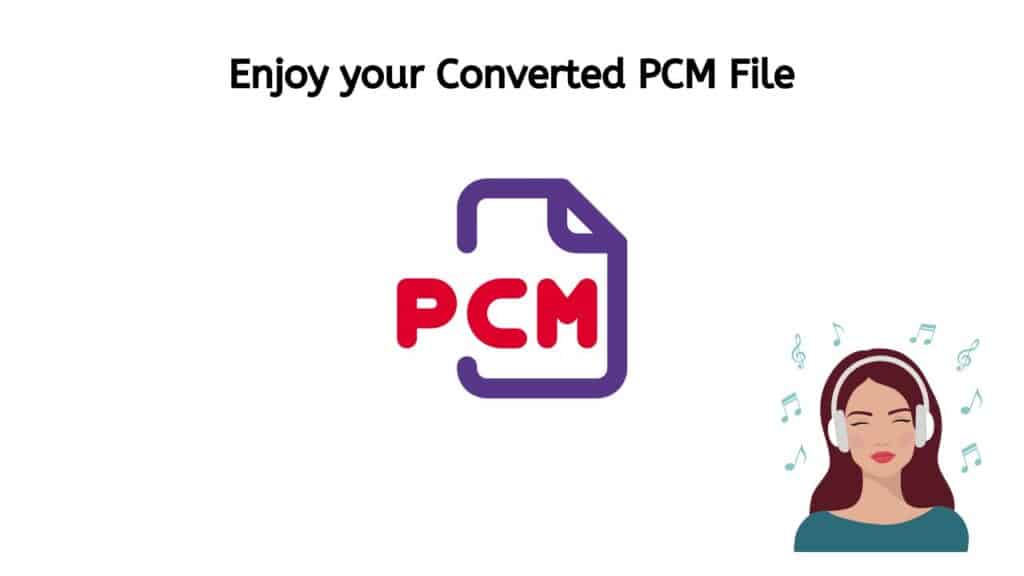
Your audio file has been successfully converted to PCM format. Numerous audio apps, including media players, audio editing software, and even certain video editing tools, readily support this adaptable file format. You may now easily import, modify, and play your audio using your PCM file. The PCM format will give you the versatility you need to work with your audio files whether you’re a musician, audio engineer, or simply someone who enjoys listening to music. Enjoy your listening!
Can PCM be converted back to DSD?
Using our online converter, you may convert your PCM files back to the DSD format. You merely need to drag and drop your file or upload it to our conversion tool to convert PCM back to DSD, and you’ll have your file in DSD audio file format in a matter of seconds. A unique algorithm is used to reconstruct the analog audio waveform from the digital values of the PCM stream during the conversion of PCM to DSD. The generated DSD signal has a high level of fidelity. Generally speaking, it is rather simple to convert PCM back to DSD using our web application.
How do I play DSD files with foobar2000?
A plugin that gives the player DSD support must be installed in order to play DSD files with foobar2000. The foo input sacd plugin is one such add-on, and you can obtain it from the foobar2000 website.
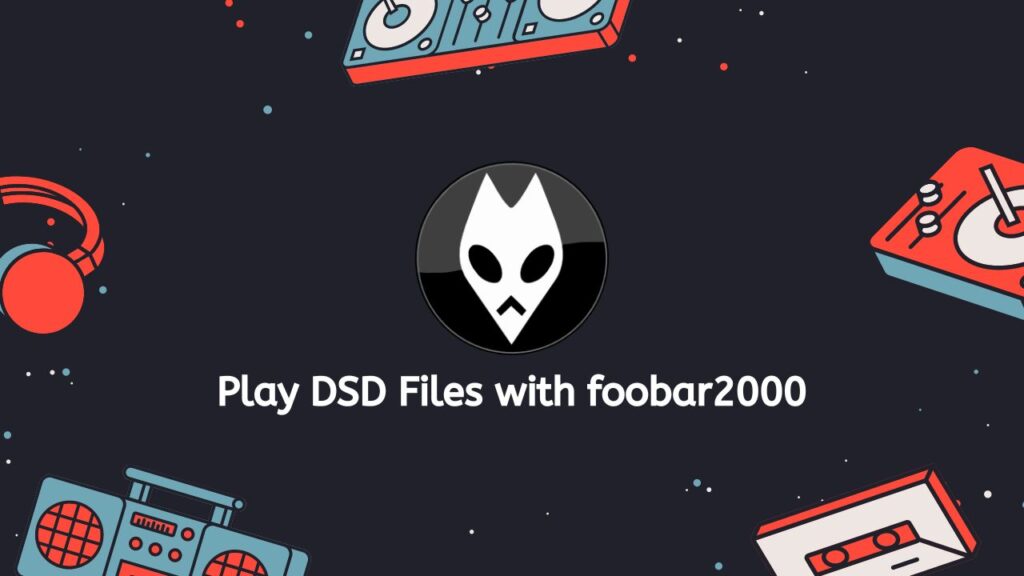
To install the plugin, follow these steps:
- Download the plugin from the foobar2000 website.
- In foobar2000, go to “File” > “Preferences”.
- In the Preferences window, go to “Components”.
- Click the “Install…” button.
- Navigate to the location where you downloaded the plugin, select it, and click “Open”.
- Click “OK” to close the Preferences window.
You should be able to play DSD files in foobar2000 after installing the plugin.
Our Reliable Online Converter Tool
Our app is reliable, fast, and free to use. It has top ratings from users and works on any device, including smartphones, computers, and tablets. Whether you’re on the go or at your desk, you can easily convert audio files from one format to another including AIFF to M4A and files from the PCM format to AAC audio format with our application.
Our app’s ability to maintain the audio quality while converting is one of its outstanding features. Unlike many other conversion programs, our app guarantees that the PCM version of your file is equally as high-quality as the original DSD version.
Advantages of using the PCM Format
An analog signal is digitally represented via pulse code modulation (PCM). PCM files are digital audio files that contain samples of recorded sound. Using PCM files instead of other kinds of audio files has a number of advantages:
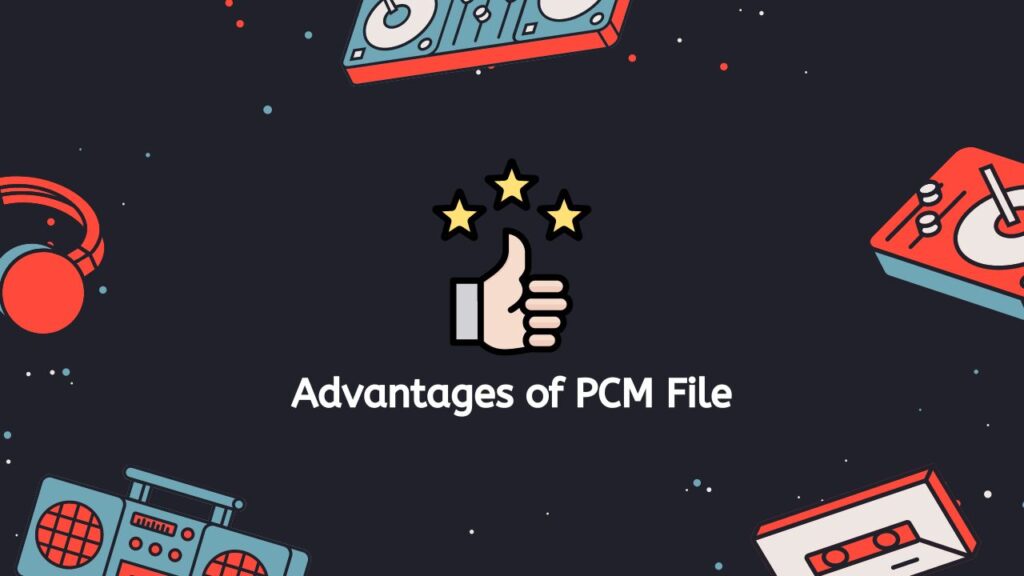
- Quality: PCM files are considered to be “lossless” because they do not lose any quality during the conversion process from analog to digital. This means that the audio in a PCM file will be indistinguishable from the original analog source.
- Compatibility: PCM files are widely supported by a variety of devices and software programs, making them easy to use and share.
- Ease of editing: Because PCM files are digital, they can be easily edited using software programs such as audio editors and digital audio workstations. This allows users to manipulate the audio in a variety of ways, such as cutting, copying, and pasting sections of the audio, as well as applying effects and filters.
- File size: PCM files tend to be larger in size compared to other types of audio files, such as MP3s or AACs, which use lossy compression to reduce file size. However, the larger file size of PCM files is a trade-off for the high quality and versatility of the audio.
- Archival: PCM files are often used for archival purposes because they provide a high-quality digital representation of the original analog audio. This makes it easy to preserve and access the audio for future use.
PCM files offer a high level of quality, compatibility, and versatility for digital audio. They are a popular choice for professionals in the audio industry, as well as for enthusiasts who want to preserve the highest quality audio possible.
Is DSD better than PCM?
Audio data can be encoded using DSD (Direct Stream Digital) or PCM (Pulse Code Modulation), two alternative techniques. Both have distinctive qualities of their own and can be used for various purposes. The usefulness of a given audio encoding method depends on the specific application and the listener’s preferences, therefore it is inaccurate to argue that one is necessarily “better” than the other.
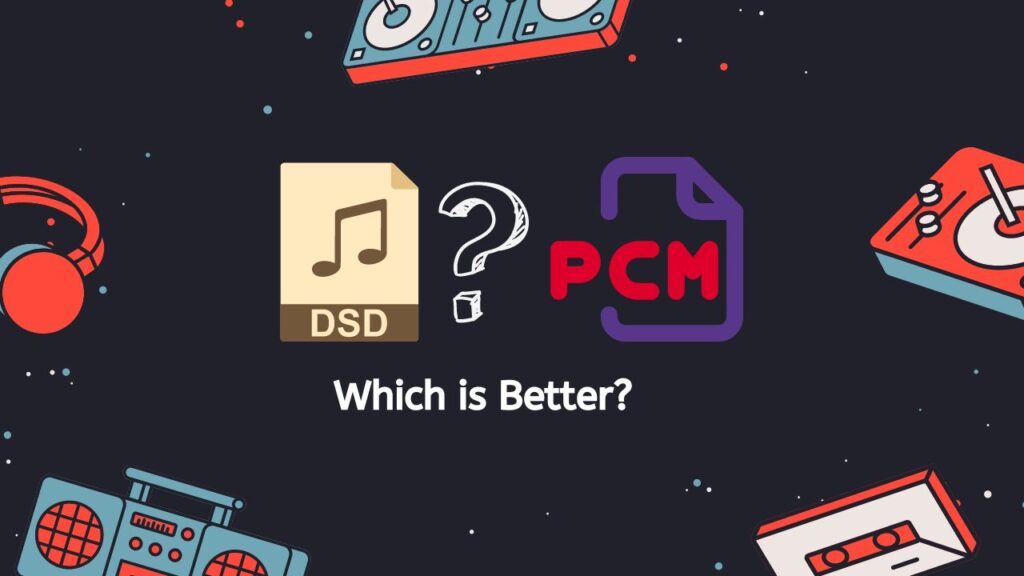
The Super Audio CD (SACD) format principally uses the pulse density modulation (PDM) technique known as DSD. It is renowned for the natural, high-quality sound it produces, as well as for having a broad dynamic range and a broad frequency response. DSD can be more effective than some other audio encoding techniques because its encoding and decoding procedures are both quite straightforward.
A common technique for encoding digital audio data is PCM. It operates by periodically sampling an analog audio source and quantizing it into a digital representation. PCM is a versatile and generally accepted audio format that may be applied to a wide range of situations. In terms of sound reproduction, it is typically not as good as DSD, and it might not be able to record a dynamic range or frequency response as wide.
Audiophile-grade music recordings and playback are well suited for the high-quality audio format DSD. A more popular and universally compatible audio format that may be utilized for a variety of purposes is PCM. Whether DSD or PCM is “better” for a given application depends on the user’s particular requirements and preferences.
Bottom Line
Stop wasting your valuable time on convoluted software or shoddy web resources. Instead, you can quickly and effectively convert DSD to PCM with our app, allowing you to listen to high-quality music on any device. Try it out right now to discover for yourself why so many users have rated our app so highly.
Frequently Asked Questions
This is a list of questions and answers that our users often ask about converting DSD to PCM files.
How do I convert an MP3 file to DSD?
To convert MP3 to DSD, use our online converter tool. Simply upload or drag and drop your MP3 file and it will be converted to the DSD format in seconds. The process is easy and fast. It is also free to use. You can convert as many MP3 files as you want.
What is DSD audio file?
DSD audio files are encoded using the Direct Stream Digital (DSD) format. DSD is a high-resolution audio format that is typically used for storing music on Super Audio CDs (SACDs).
What is the difference between DSD file and DSF?
DSF is a file format that is used for storing DSD audio files. The difference between DSD and DSF is that DSD is the audio encoding format, while DSF is the file format used for storing DSD audio files.
Does VLC play PCM files?
VLC is a media player that can play a variety of audio and video file formats, including PCM audio files.
Which Sound is Better? DSD or PCM?
DSD (Direct Stream Digital) and PCM (Pulse-Code Modulation) are both digital audio formats, and the choice between them is largely a matter of personal preference. Some people may prefer the sound of DSD, while others may prefer PCM.
DSD is a type of pulse-density modulation (PDM) format, which uses a higher sampling frequency than PCM. This can give DSD recordings a smoother, more analog-like sound compared to PCM recordings. However, DSD files are typically larger than PCM files, which can make them more difficult to store and transmit.
PCM is a more widely used format and is the standard for most CDs and digital audio files. It is a pulse-code modulation format that encodes an analog signal as a series of digital values. PCM recordings can sound very accurate and detailed, but some people may find them to be too clinical or harsh sounding.
The choice between DSD and PCM comes down to personal preference and the specific characteristics of the recording and playback equipment being used. It is a good idea to try out both formats and see which one you prefer.


